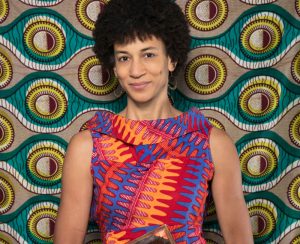April 18, 2016; Argus Leader (Sioux Falls, SD)
When Marvin Schwan died suddenly in 1993 at the age of 64, most of his frozen foods estate went to the Schwan Foundation, which he established the year before. The foundation has seven designated beneficiaries, all Lutheran Church-related entities.
Next week, the South Dakota Supreme Court will hear an appeal from two of Marv Schwan’s sons to compel the Schwan Foundation’s trustees to disclose information on why their father’s foundation has lost as much as $600 million since its founding. News reports and a review of the Form 990 returns from the Schwan Foundation reflect a baffling mix of conflicts of interest, overseas real estate investments in resort properties by the foundation, and the use of a “trustee succession committee,” designed to review the performance of trustees, on which the two sons serve.
Based on its Form 990 filings, in 2002, the Schwan Foundation held $886 million in assets and gave $44 million in grants. By 2013, assets shrank to $449 million and grants totaled $14 million, less than half the 2002 total. The 2002 Form 990 was already reporting net foundation asset and income losses; in 2011 alone, the foundation’s assets dropped by more than $240 million in that single year. About a third of the foundation’s assets are invested directly in various real estate projects in the Caribbean and held through offshore corporations in the British Virgin Islands and elsewhere. Two of the foundation’s trustees also serve as directors of a for-profit in which the foundation held a $90 million investment in 2013.
The “trustee succession committee” was apparently designed as a way for an independent body to assess the foundation’s performance and hold trustees accountable for fulfilling the donor’s mission. The committee has the authority to remove foundation directors should the committee believe a breach of duty has occurred. Marv Schwan’s sons, Mark and Paul, serve on the committee, but three other committee members are also current foundation trustees. Those three members, along with two non-trustee committee members, have opposed the sons’ demands for information.
Sign up for our free newsletters
Subscribe to NPQ's newsletters to have our top stories delivered directly to your inbox.
By signing up, you agree to our privacy policy and terms of use, and to receive messages from NPQ and our partners.
The foundation’s board has its own long-standing conflict with one of its employees. Rev. Lawrence Burgdorf, a trustee and member of the trustee succession committee, is the father of Erik Burgdorf, the foundation’s associate director. Rev. Burgdorf is also the foundation’s former executive director, with a reported 2002 salary in excess of $300,000. Erik Burgdorf’s 2013 compensation as associate director was just over $200,000.
One might think the seven foundation beneficiaries would have a strong interest in seeing the foundation become more accountable to the trustee succession committee and rebuild its assets. The reason for this may be contained in the following quote from the foundation’s 2013 Form 990:
Key employees and/or trustees of the foundation maintain close and continuous relationships with each of the foundation’s supported organizations by serving on the organizations’ governing body and/or maintaining a working relationship with the beneficiary organizations’ Board members. These relationships allow the foundation to remain responsive to the needs of its supported organizations as well as oversee the use of the grant funds. Further, these relationships provide the supported organizations with a way to exercise a voice in the investment and grantmaking activities of the foundation. The majority of the grants are not designated for a specific purpose; however, by the beneficiary organizations adhering to their stated missions, the foundation is satisfied that proper stewardship of the grant funds have been attained.
This might explain why the beneficiary organizations are joining the foundation in opposing the lawsuit brought by Mark and Paul Schwan in their roles as members of the trustee succession committee overseeing the foundation’s trustees.—Michael Wyland













